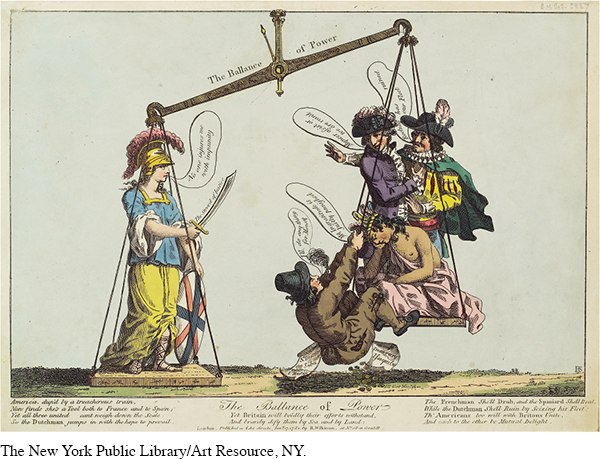The American Promise: Printed Page 187
The American Promise, Value Edition: Printed Page 172
The American Promise: A Concise History: Printed Page 197
The Southern Strategy and the End of the War
The American Promise: Printed Page 187
The American Promise, Value Edition: Printed Page 172
The American Promise: A Concise History: Printed Page 197
Page 187When France joined the war, some British officials favored abandoning the fight. As one troop commander shrewdly observed, “we are far from an anticipated peace, because the bitterness of the rebels is too widespread, and in regions where we are masters the rebellious spirit is still in them. The land is too large, and there are too many people. The more land we win, the weaker our army gets in the field.” The commander of the British navy agreed, as did Lord North, the prime minister. But the king was determined to crush the rebellion, and he encouraged a new strategy for victory focusing on the southern colonies, thought to be more reliably loyalist. He had little idea of the depth of anger that would produce deadly guerrilla warfare between loyalists and patriots. The king’s plan was brilliant but desperate, and ultimately unsuccessful.
